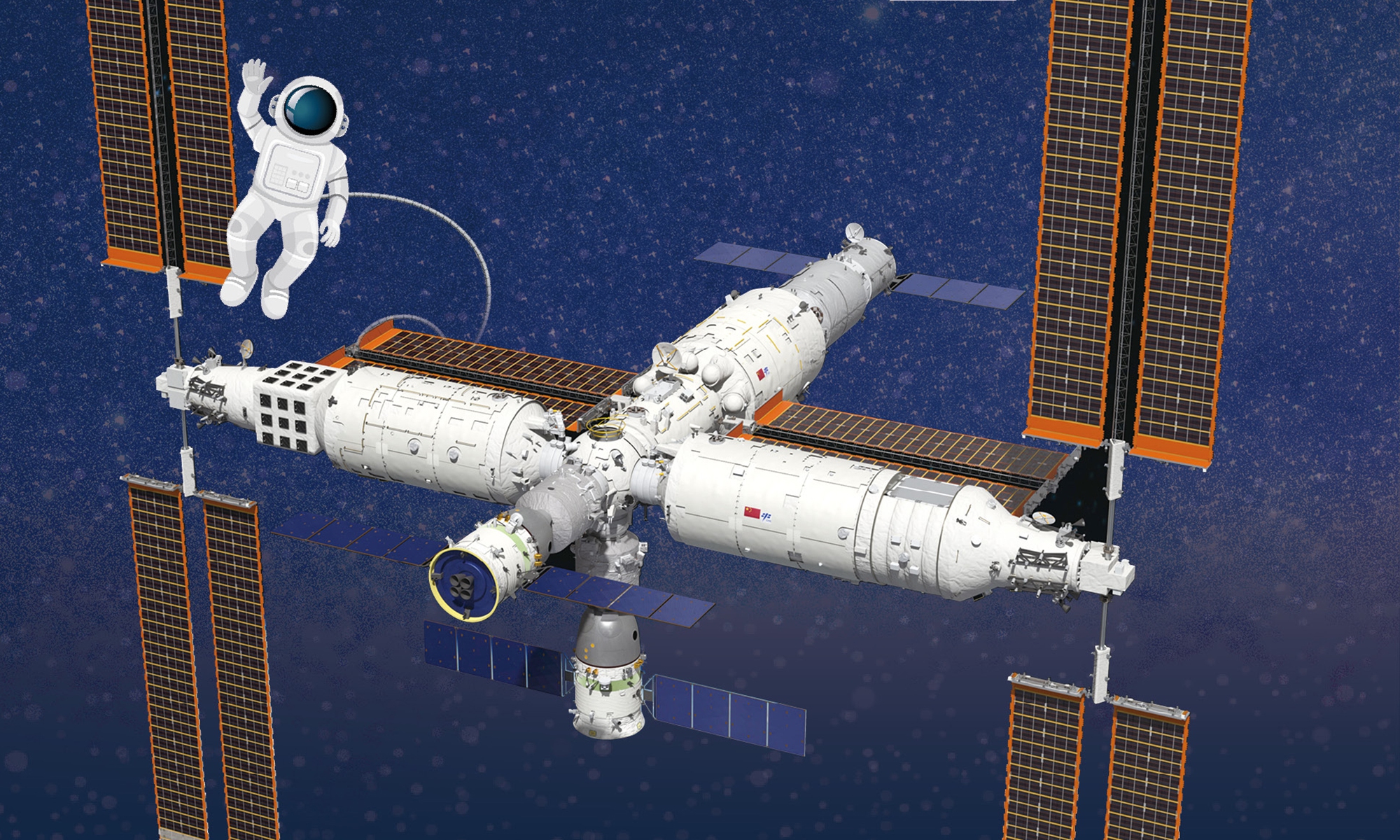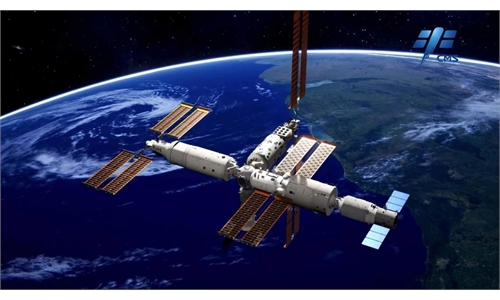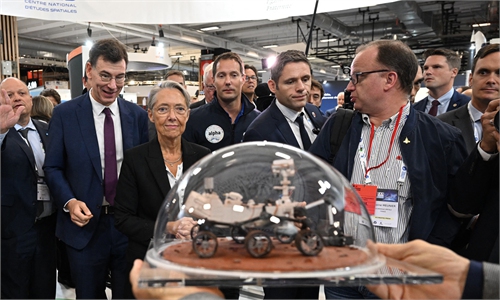Europe's decision of not sending astronauts to China Space Station 'short-sighted, kidnapped by US pressure amid Ukraine crisis'

China Space Station
The yearlong Russia-Ukraine conflict that has strengthened and expanded the US' influence and pressure in Europe across several fronts, including space, which could be the main political factor behind Europe spiking a plan to visit the China Space Station, observers said, after the head of the European Space Agency (ESA) revealed that the agency will not send astronauts to China's Tiangong space station.
ESA Director General Josef Aschbacher said in late January during an annual press briefing in Paris that "for the moment we have neither the budgetary nor the political, let's say, green light or intention to engage in a second space station; that is participating on the Chinese space station," the Space News reported.
The remark has recently been hyped by some Western media outlets, with the VOA on Sunday claiming in a news report that the cooperation between China and Europe is difficult under the "new space race."
China and the ESA had been working for years toward a potential visit of European astronauts to China's Tiangong space station since the China Manned Space Agency and ESA signed an agreement in 2015.
For example, in August 2017, ESA astronauts Samantha Cristoforetti and Matthias Maurer joined 16 Chinese astronauts for nine days of sea survival training off the eastern Chinese coastal city of Yantai. In 2016, Chinese astronaut Ye Guangfu joined ESA's caving course in Sardinia to experience an extreme environment as part of a multicultural crew, according to the ESA.
China launched its first space station module in 2021 and completed the three-module outpost in late 2022. Officials from the China Manned Space Agency have said they have received interest in international astronauts flying to Tiangong space station.
Now ESA's decision was the result of Europe being increasingly kidnapped by the US amid the ongoing and prolonged Russia-Ukraine conflict, Song Zhongping, a space watcher and TV commentator, told the Global Times on Sunday.
Giving up cooperation with China in the manned space domain is clearly short-sighted, which reveals that the US-led camp confrontation has led to a new space race.
Wei Dongxu, another space observer, told the Global Times that the US-led sanctions and blockade against Russia's technology have directly impacted the Europe's development of its own space capabilities. For example, the embargo on Russian engines has made it completely impossible for Europe to develop and manufacture its own launchers.
The US is applying a zero-sum game and increasing pressure to further rein in Europe and prevent Europe from cooperating with its imaginary competitors and members of the enemy camp, Wei said.
China will unwaveringly uphold openness and inclusiveness with its China Space Station, and leave the friendly door open so that when Europe can understand that space-related cooperation with China, unlike that with the US, has no political attachment, Song said.





